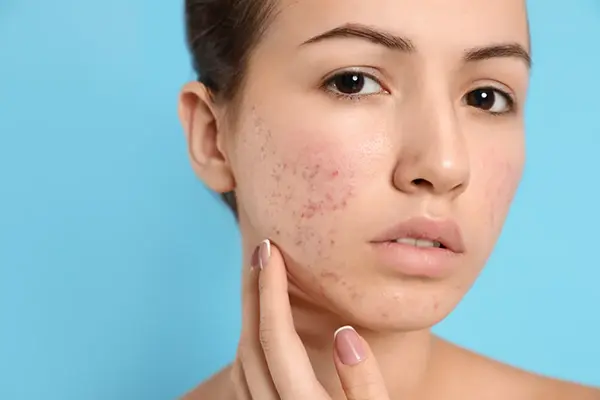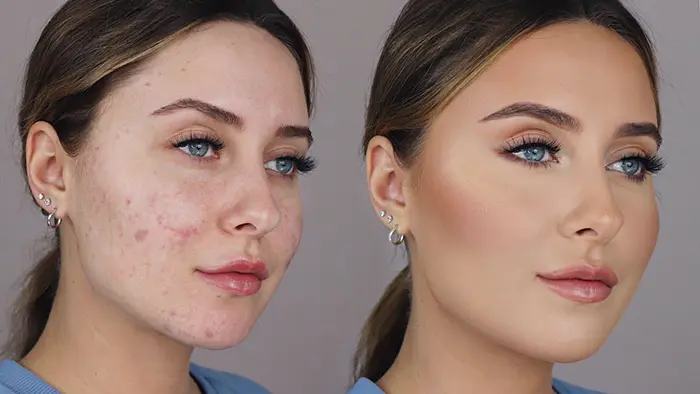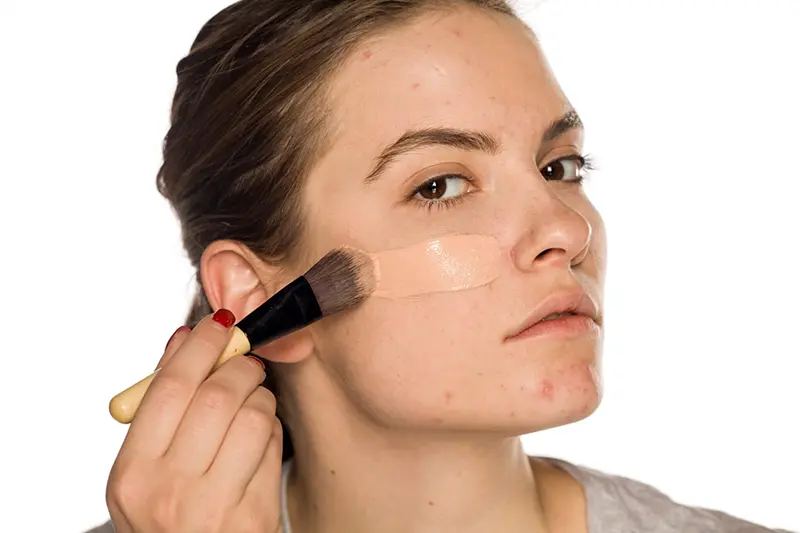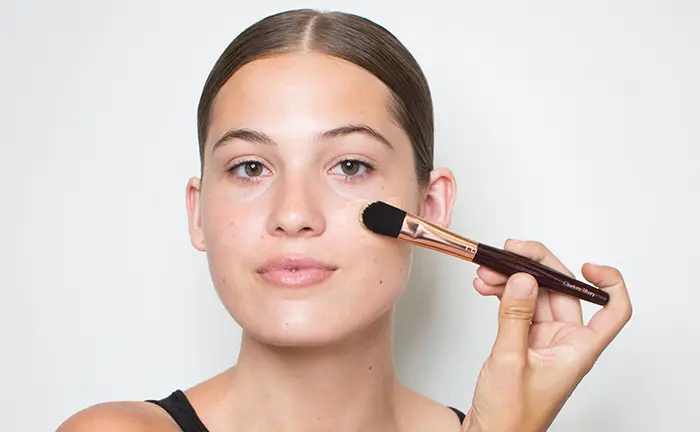Dealing with acne-prone skin can be difficult, particularly in terms of selecting the correct makeup to prevent aggravation of breakouts. If you are among the many people who battle this, you know the annoyance of trying product after product only to find more imperfections. Still, dread not! This guide offers ideas, strategies, and product recommendations to help you navigate the world of makeup for acne-prone skin, thereby attaining a perfect, radiant look without fearing aggravation of your acne.
Table of contents
Knowing Skin That Is Acne-Prone
Knowing what causes your skin to be acne-prone will help you better appreciate cosmetics advice. When oil and dead skin cells clog hair follicles, causing pimples, blackheads, and cysts, acne results. This issue can be aggravated by elements including hormones, genes, and some skincare products. Makeup for acne-prone skin requires careful selection; your makeup decisions will be much influenced by your skin type and triggers, so you should choose items that complement rather than work against your skin.

Prepping Your Skin for Makeup for Acne-Prone Skin
- Cleanse Gently: Start with a mild cleanser to eliminate extra oil and pollutants. To prevent irritation, choose sulfate-free and non-comedogenic (won’t clog pores) formulations.
- Moisturize: Even acne-prone and oily skin needs moisture. Select a lightweight, oil-free moisturizer that hydrates without aggravating pores.
- Prime: An excellent primer can lower shine, smooth out a foundation for makeup, and prolong the use of your foundation. Choose primers including salicylic acid or another acne-fighting agent.
Choosing the Right Makeup Products
Foundation
- Formula: Search for non-comedogenic, oil-free, and breathable formulations. For Makeup for Acne-Prone Skin, mineral foundations are often a wise choice.
- Ingredients to Look For: Foundations including salicylic acid can help cure and prevent acne. Among other helpful components are hyaluronic acid, which hydrates without blocking pores, and niacinamide, which lowers inflammation.
- Coverage: You could choose a lighter formula for a more natural look or full-coverage to cover flaws depending on your inclination.
- Estée Lauder Double Wear Stay-in-Place Makeup offers buildable coverage from a long-wearing, non-comedogenic foundation.
Primer
- For makeup for acne-prone skin, a proper primer is absolutely important. It helps regulate oil throughout the day and provides a smooth basis for your makeup. Search for a primer free of oil and non-comedogenic—that is, one not likely to clog pores. Salicylic acid products might also help prevent breakouts.
- Smashbox Photo Finish Oil & Shine Control Primer – Controls oil and provides a smooth base for makeup.
Concealer
- Choose a creamy concealer that won’t settle into dry areas or acne scars. It should feel light even if it provides good coverage.
- NARS Soft Matte Complete Concealer – Offers high coverage with a matte finish, ideal for spot concealing.
Powder
- Set your makeup and control oil all day using a mattifying powder. Translucent powders could help to prevent the cakey appearance.
- Laura Mercier Translucent Loose Setting Powder – A lightweight, non-comedogenic powder that sets makeup without clogging pores.
Blush and Bronzer
- Powder blushes and bronzers are typically better for acne-prone skin as they absorb excess oil. Steer clear of glittering formulations that accentuate flaws.
- Tarte Amazonian Clay 12-Hour Blush – A long-lasting, non-comedogenic blush that adds a natural flush without irritating the skin.
For acne-prone skin, choose makeup products containing salicylic acid, benzoyl peroxide, and those labeled as non-comedogenic. It’s also best to avoid heavy fragrances and oils.
Application Techniques for Makeup for Acne-Prone Skin
Tools:
Apply your makeup always with fresh brushes and sponges. bacteria found in dirty tools might worsen acne.
Technique:
Starting from the middle of your face, gently apply foundation and work outward. In problem areas, this helps prevent cakey accumulation.
Cover blemsish with your concealer using a dabbing motion without irritating them more.
Less Is More
When working with makeup for acne-prone skin, less is generally more. Using too much makeup might clog your pores and give your skin a cakey appearance. Start with a little product and expand coverage as necessary.

Maintaining Healthy Skin
Although makeup might enable you to look perfect, keeping good skin is absolutely vital. These suggestions will help you to maintain perfect condition of your skin:
- Consistent Skincare Routine: Keep up a skincare routine including treating your skin, hydrating, and cleaning. Use gentle, acne-fighting ingredients like benzoyl peroxide and salicylic acid.
- Remove Makeup Thoroughly: Never go to sleep with makeup on. To make sure all of the makeup is gone, use a gentle makeup remover then a cleanser.
- Hydrate Inside and Out: To maintain balanced and healthy skin, drink lots of water and apply hydrating products.
- Avoid Touching Your Face: Steer clear of touching your face since oils and bacteria from your hands will find their way to your skin and cause breakouts.
- Regular Exfoliation: One to two times a week exfoliate your skin to eliminate dead skin cells and avoid clogged pores. Steer clear of irritation by using mild exfoliants.
Conclusion
Navigating the world of makeup for acne-prone skin might be intimidating, but with the correct products and methods, you can get a gorgeous, confident look. The secret is to keep a gentle skincare routine, pick non-comedogenic products, and apply your makeup with clean brushes. Following these guidelines can help you improve your natural beauty without compromising the health of your skin.
FAQs
1. What is the best type of foundation for acne-prone skin?
Breathable, non-comedogenic, oil-free foundation is the best choice for makeup for acne-prone skin. Another excellent choice is mineral foundations.
2. Can I use a primer if I have acne-prone skin?
You certainly can use a primer. To help keep your skin clear, search for primers including salicylic acid, which fights acne-causing agents.
3. How can I prevent my makeup from causing more breakouts?
To prevent breakouts, always choose non-comedogenic products, clean your brushes regularly, and remove your makeup thoroughly at the end of the day.
4. Are powder or liquid blushes better for acne-prone skin?
Powder blushes are generally better for acne-prone skin as they absorb excess oil and are less likely to clog pores compared to liquid blushes.
5. What should I do if my skin reacts to a new makeup product?
If your skin reacts to a new makeup product, stop using it immediately and revert to a gentle skincare routine tailored for makeup for acne-prone skin. Consult with a dermatologist if the reaction persists.
6. Can I wear makeup if I have active acne?
Yes, you can wear makeup if you have active acne. Choose non-comedogenic products and ensure you remove your makeup thoroughly at the end of the day.
Related Posts:
Top Tips for Achieving Long-Lasting Makeup All Day




